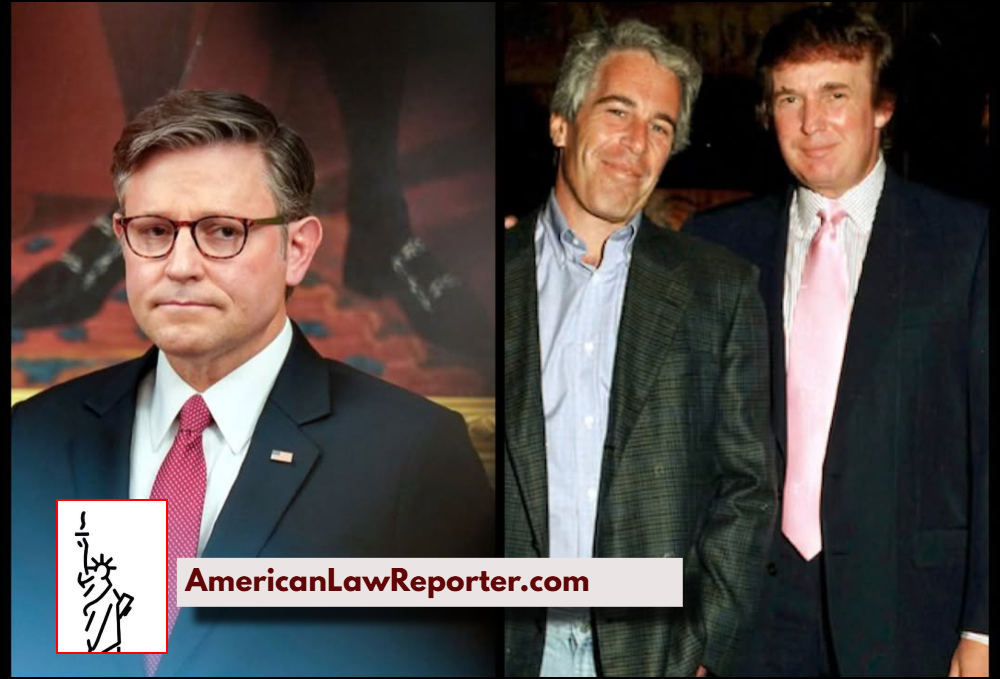In a surprise move that is drawing bipartisan scrutiny and public outcry, House Speaker Mike Johnson abruptly adjourned the House of Representatives a day early—just as momentum was building around a potential vote to release sealed files related to convicted sex offender Jeffrey Epstein and subpoena his longtime associate, Ghislaine Maxwell.
The early dismissal of the House session comes amid growing bipartisan pressure to increase transparency around the Epstein case, including demands for a full accounting of individuals who may have participated in or enabled Epstein’s decades-long trafficking network.
“We’re done being lectured on transparency,” Johnson said in defense of the decision—a comment critics quickly labeled ironic, given the mounting calls for openness.
The Epstein Files: A Legal and Political Hot Potato
The push to release the Epstein documents has gained unusual bipartisan traction, with both Republicans and Democrats supporting a vote to subpoena Ghislaine Maxwell and unseal previously undisclosed records that may contain the names of high-profile individuals connected to Epstein’s alleged crimes.
The sealed documents in question—reportedly held by the Department of Justice (DOJ) and federal courts—could shed light on Epstein’s global network, including potentially incriminating information on financiers, politicians, royalty, and celebrities. Several legal scholars and human rights advocates argue the files hold significant public interest, particularly given Epstein’s mysterious 2019 death in federal custody and persistent doubts surrounding the investigation.
The situation intensified when Maxwell’s attorneys confirmed that she would “testify truthfully” if subpoenaed by Congress. Maxwell is currently serving a 20-year prison sentence after being convicted in 2021 of sex trafficking minors for Epstein.
A Pause or a Power Play?
Instead of allowing a vote to proceed, Speaker Johnson announced an early adjournment of the House, effectively halting any immediate legislative action on the Epstein files until after the August recess, when lawmakers return in September.
“It doesn’t scream transparency—it screams, ‘We need time to get our story straight,’” said one Hill staffer, echoing a sentiment that is spreading across political factions.
Critics have also pointed out the timing of the House’s decision, which comes on the heels of the National Archives releasing over 200,000 documents related to Dr. Martin Luther King Jr., raising questions about selective transparency and political motivation.
Subpoena Push for Maxwell Gains Steam
The House Oversight Committee, which had been preparing to formally subpoena Maxwell, was expected to deliberate on the matter before the abrupt session closure. Legal experts say that if Maxwell testifies, it could expose critical legal vulnerabilities for individuals who had, until now, avoided scrutiny.
“If she testifies truthfully—as her attorneys claim—this could have a massive ripple effect, both politically and legally,” said a Washington-based constitutional attorney.
The DOJ has reportedly already approached Maxwell about potential testimony, although details of that engagement remain sealed. Any congressional testimony under subpoena would likely be conducted under oath, exposing Maxwell to perjury charges if she withholds or falsifies information.
What’s Next?
Congress is not expected to reconvene until early September, leaving Epstein-related transparency efforts in limbo. However, grassroots and political pressure is mounting, with public petitions, media campaigns, and renewed bipartisan efforts expected to intensify during the recess.
Some members of Congress have vowed to pursue a standalone bill mandating the release of Epstein-related files. Others are urging the DOJ to act independently and release the files in the interest of public trust.
For now, the Epstein case remains a volatile legal flashpoint—one that refuses to disappear quietly into the recess.

